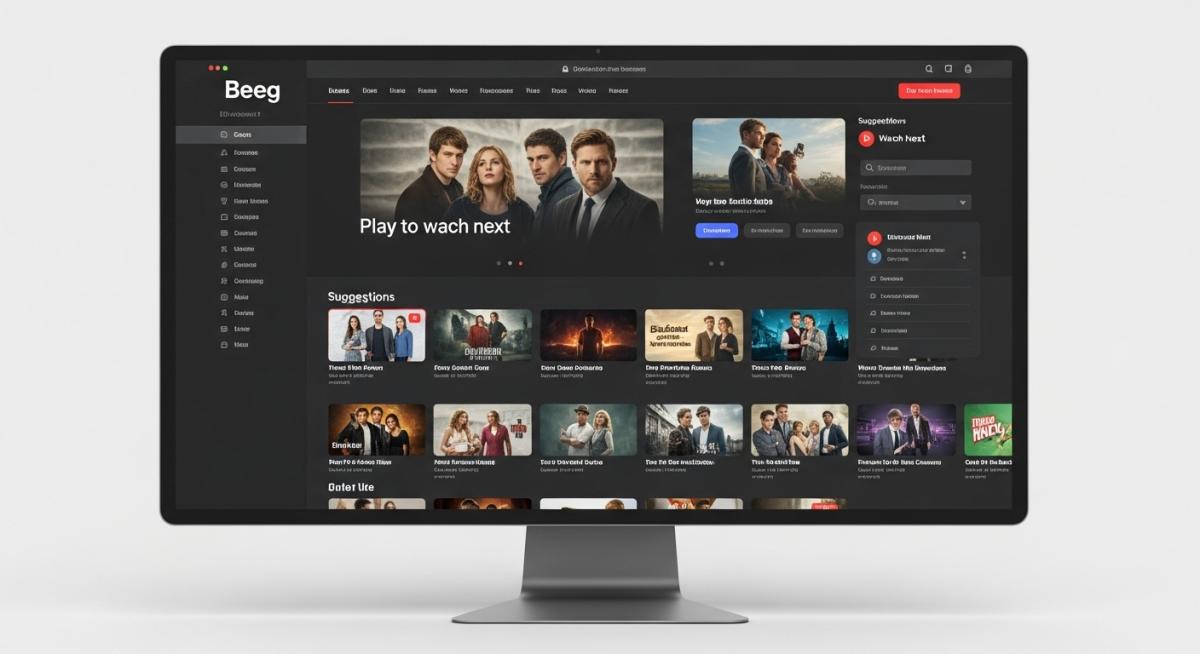Is Beeg Safe For Your Device?

In the ever-expanding universe of online video streaming platforms, Beeg has gained attention for its vast content library and free access. While many users are drawn to its easy-to-use interface and variety of videos, a critical question remains: Is Beeg safe for your device? This article dives into the safety concerns around Beeg, examining the potential risks it poses and how you can protect your device while enjoying online content.
Understanding Beeg: What You Need to Know
Beeg is a free streaming platform that hosts a large collection of videos accessible without requiring users to create an account or pay a subscription. It’s designed for easy browsing and quick playback, making it appealing to a wide audience.
However, Beeg operates in a space where content sourcing, moderation, and security protocols are often unclear. This uncertainty creates potential vulnerabilities for users’ devices and data.
Common Safety Concerns with Streaming Websites Like Beeg
1. Malware and Viruses
One of the biggest concerns with free streaming websites is the risk of malware. Sites that host or link to unauthorized content often rely on aggressive advertising networks that can deliver malicious software disguised as pop-ups, banners, or download prompts.
Malware can:
Slow down or damage your device.
Steal personal information.
Cause unexpected crashes or behaviors.
2. Intrusive Advertisements and Pop-ups
Beeg, like many free streaming platforms, uses ad revenue to sustain its service. This often means users encounter numerous pop-ups, redirects, and banner ads. While some are harmless, others might lead to unsafe websites or install unwanted software.
3. Data Privacy Risks
Websites that do not have transparent privacy policies may collect and misuse user data. Streaming platforms like Beeg might track your browsing habits, share data with third parties, or expose your device to tracking cookies that infringe on your privacy.
How Beeg’s Safety Compares to Licensed Streaming Services
Licensed Platforms Prioritize Security
Reputable streaming services like Netflix, Amazon Prime Video, or Disney+ invest heavily in securing their platforms. They implement:
Robust encryption to protect user data.
Frequent security audits.
Verified content to avoid illegal uploads.
Beeg’s Lack of Official Oversight
Beeg does not disclose much about its security measures or content verification processes. This lack of oversight means users bear the responsibility for ensuring their own safety while using the platform.
Technical Risks Specific to Beeg
Risk of Unwanted Software Downloads
Some users report encountering fake download buttons on Beeg that promise video downloads or enhanced features but instead trigger installations of potentially unwanted programs (PUPs).
Compatibility and Performance Issues
Because Beeg uses third-party hosting and streaming servers, video playback quality and performance can vary widely. Buffering issues and sudden redirects can frustrate users and potentially expose devices to security threats.
How to Stay Safe While Using Beeg or Similar Sites
1. Use Reliable Security Software
Install reputable antivirus and anti-malware programs on your device. Keep them updated to catch threats before they affect your system.
2. Avoid Clicking Suspicious Ads or Downloads
Do not click on pop-ups or ads promising free downloads or bonuses. Always close such windows immediately.
3. Use a Secure Browser and Enable Ad Blockers
Browsers like Google Chrome, Firefox, or Edge support extensions that block intrusive ads and dangerous scripts. Activating these can significantly reduce risks while browsing sites like Beeg.
4. Keep Your Device’s Software Updated
Regularly update your operating system and applications to patch vulnerabilities that hackers could exploit.
5. Use a VPN for Enhanced Privacy
A Virtual Private Network (VPN) helps mask your IP address and encrypts your internet traffic, adding an extra layer of security and privacy when accessing streaming websites.
Legal and Ethical Considerations Impact Safety
Using a platform like Beeg not only raises safety concerns for your device but also legal and ethical questions. Since Beeg’s content is often unverified regarding copyright status, you might be exposed to risks beyond device security, including legal repercussions for accessing unauthorized content.
Signs Your Device May Be Affected After Using Beeg
Sudden slowdowns or crashes.
Unexpected pop-ups or ads appearing outside the browser.
New toolbars or extensions added to your browser without consent.
Security software alerts about suspicious activity.
If you notice any of these signs, run a full malware scan immediately.
Alternatives to Beeg for Safe Streaming
To enjoy online video content without compromising your device’s safety, consider using trusted and licensed platforms such as:
YouTube (official channels).
Netflix.
Hulu.
Amazon Prime Video.
Disney+.
Many of these offer free trials or ad-supported free versions that provide a safe and legal viewing experience.
Conclusion: Is Beeg Safe for Your Device?
While Beeg offers free access to a wide array of video content, it poses several safety risks to your device. The presence of intrusive ads, potential malware, lack of clear security protocols, and unverified content can put your device and personal data at risk.
If you choose to use Beeg, it’s essential to follow safety precautions such as using antivirus software, avoiding suspicious downloads, and enabling ad blockers. However, the safest option remains to use licensed, reputable streaming services that prioritize user security and data protection.
Being cautious online is crucial in today’s digital environment. Protecting your device ensures a smoother, safer streaming experience—no matter the platform.